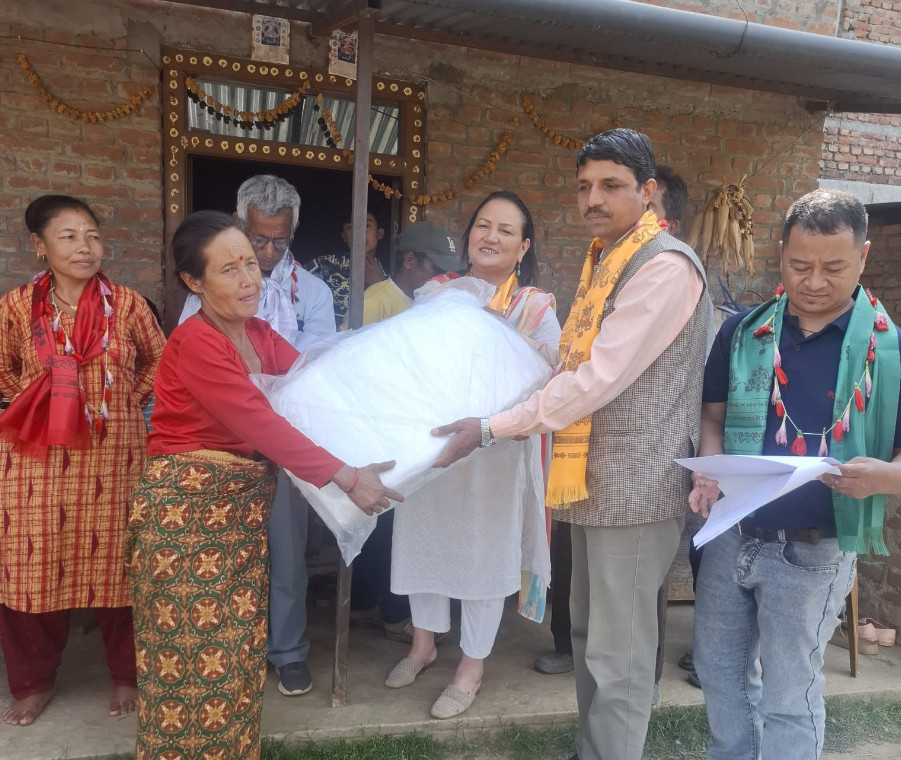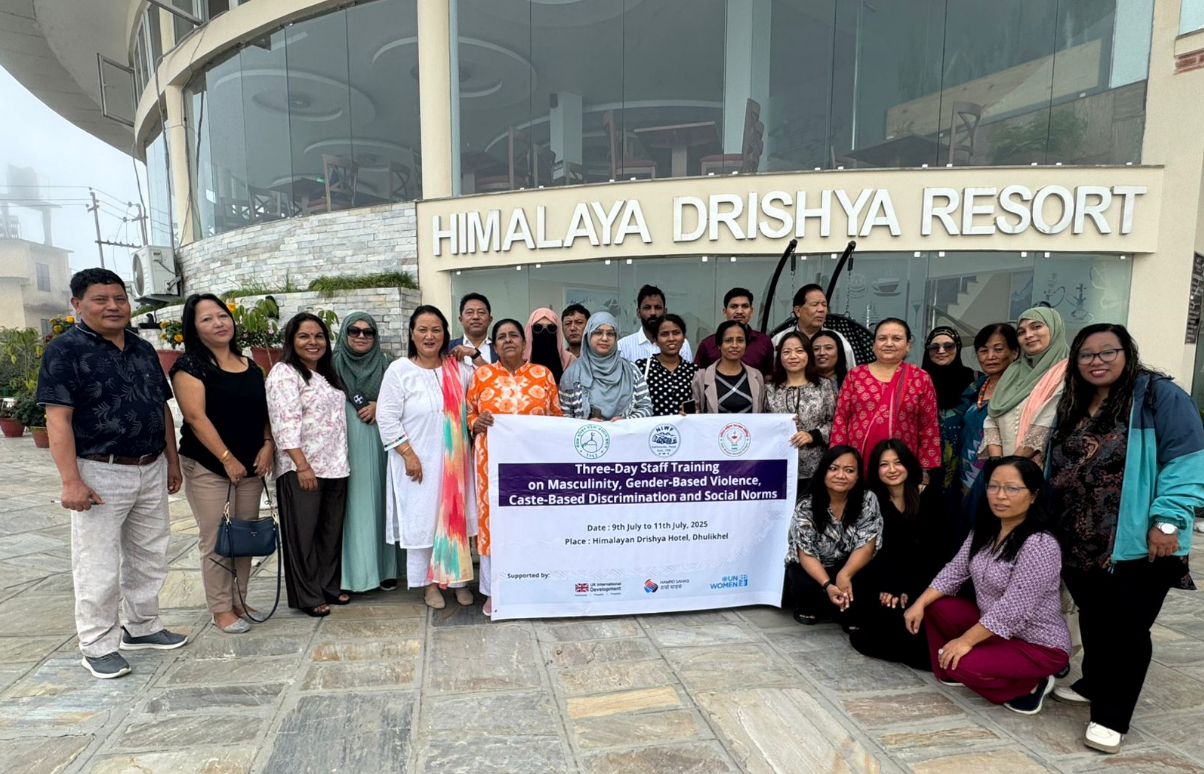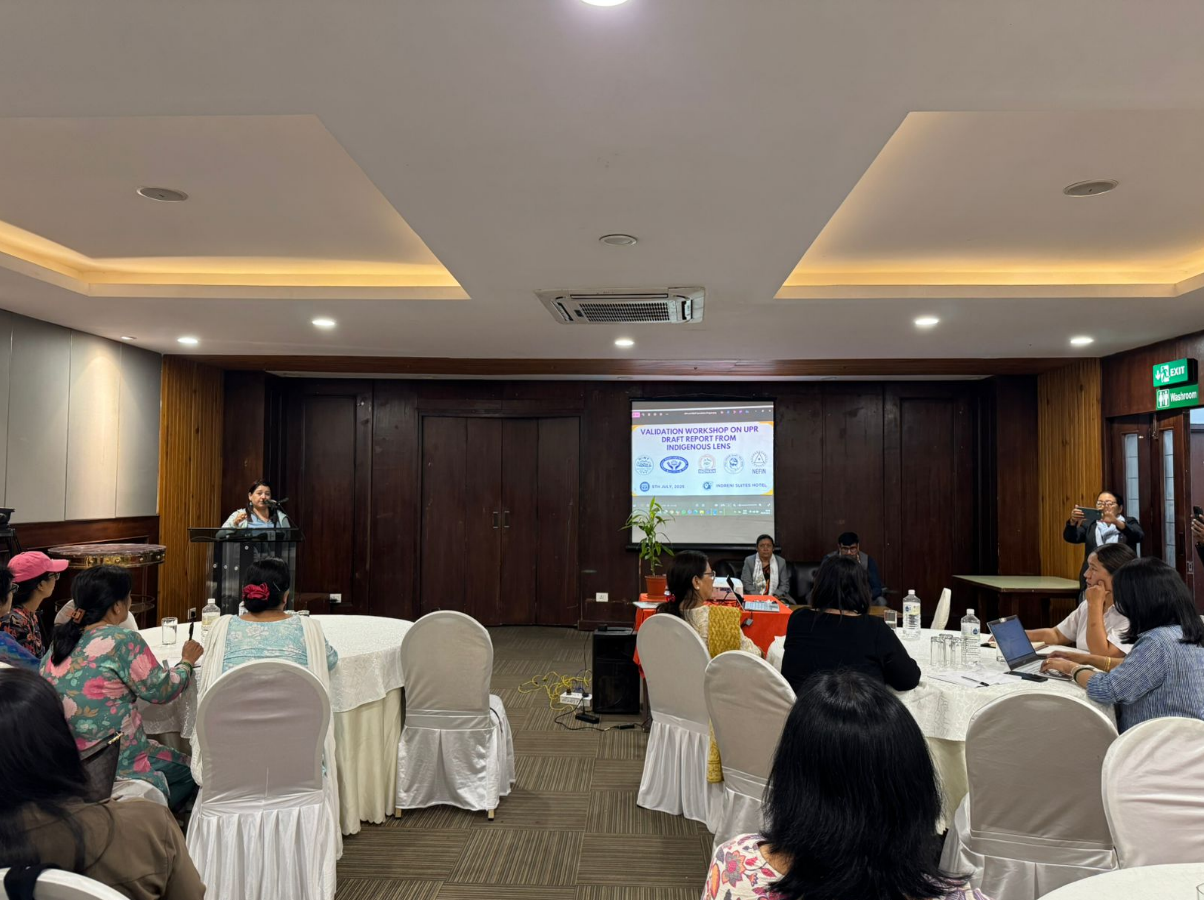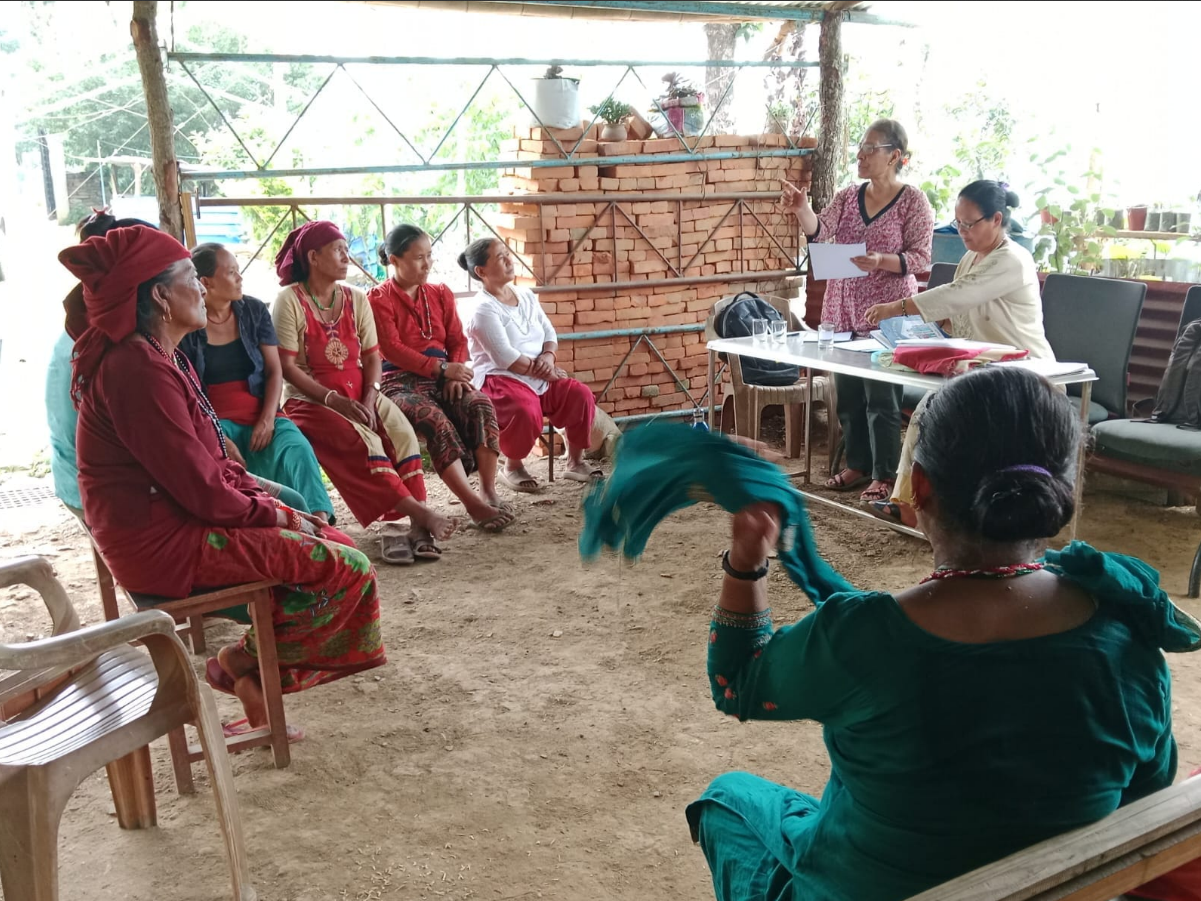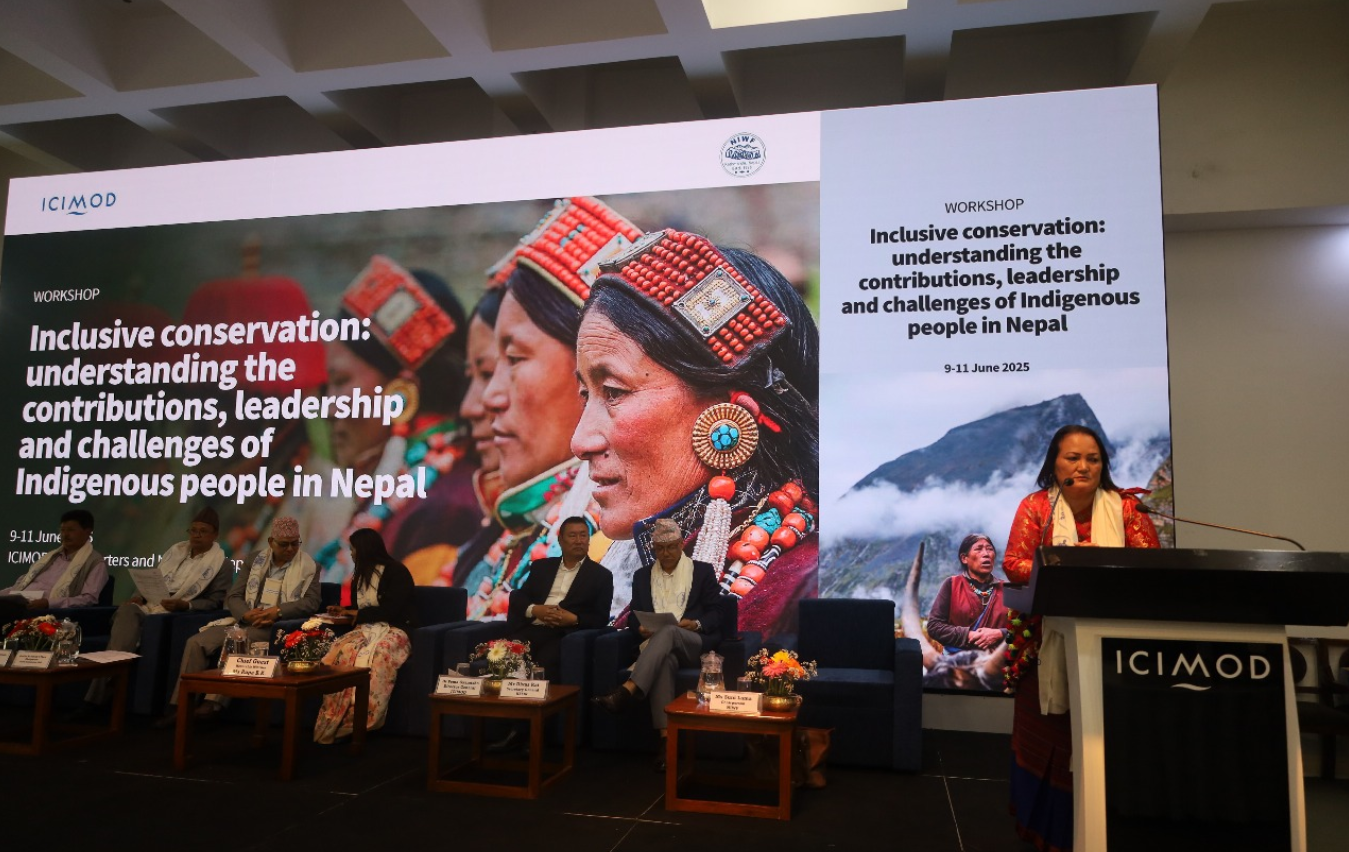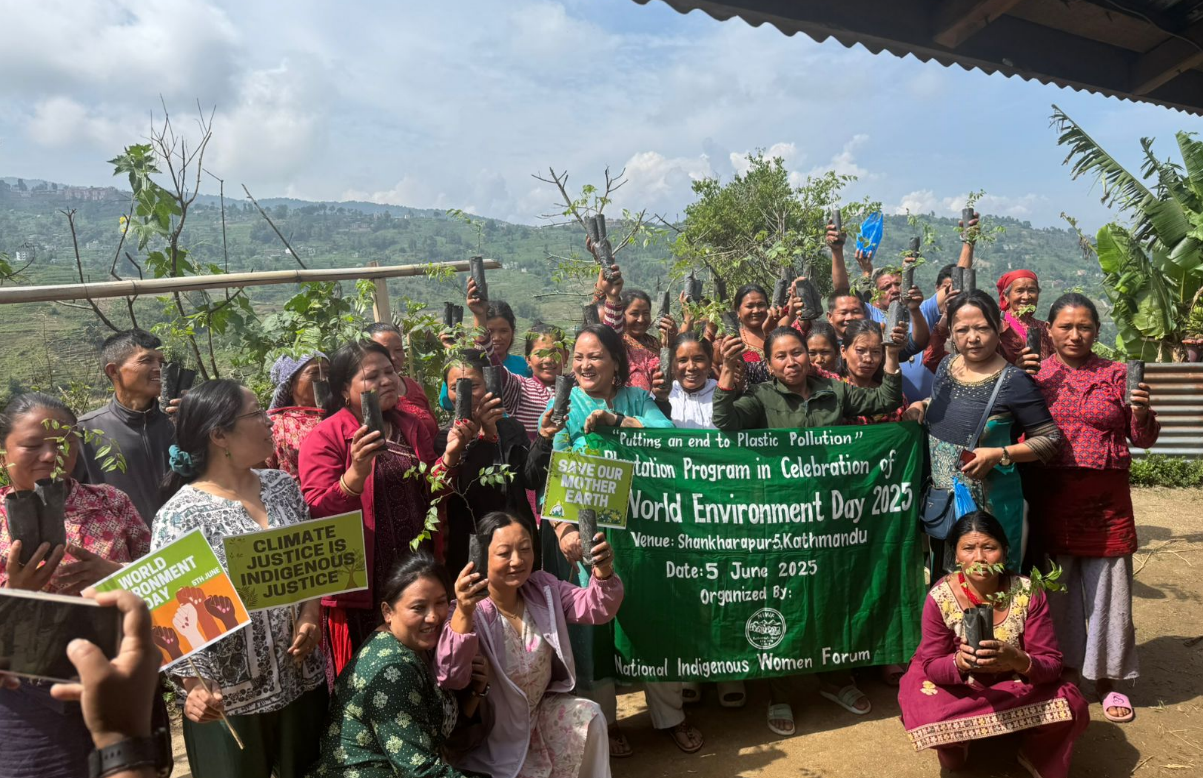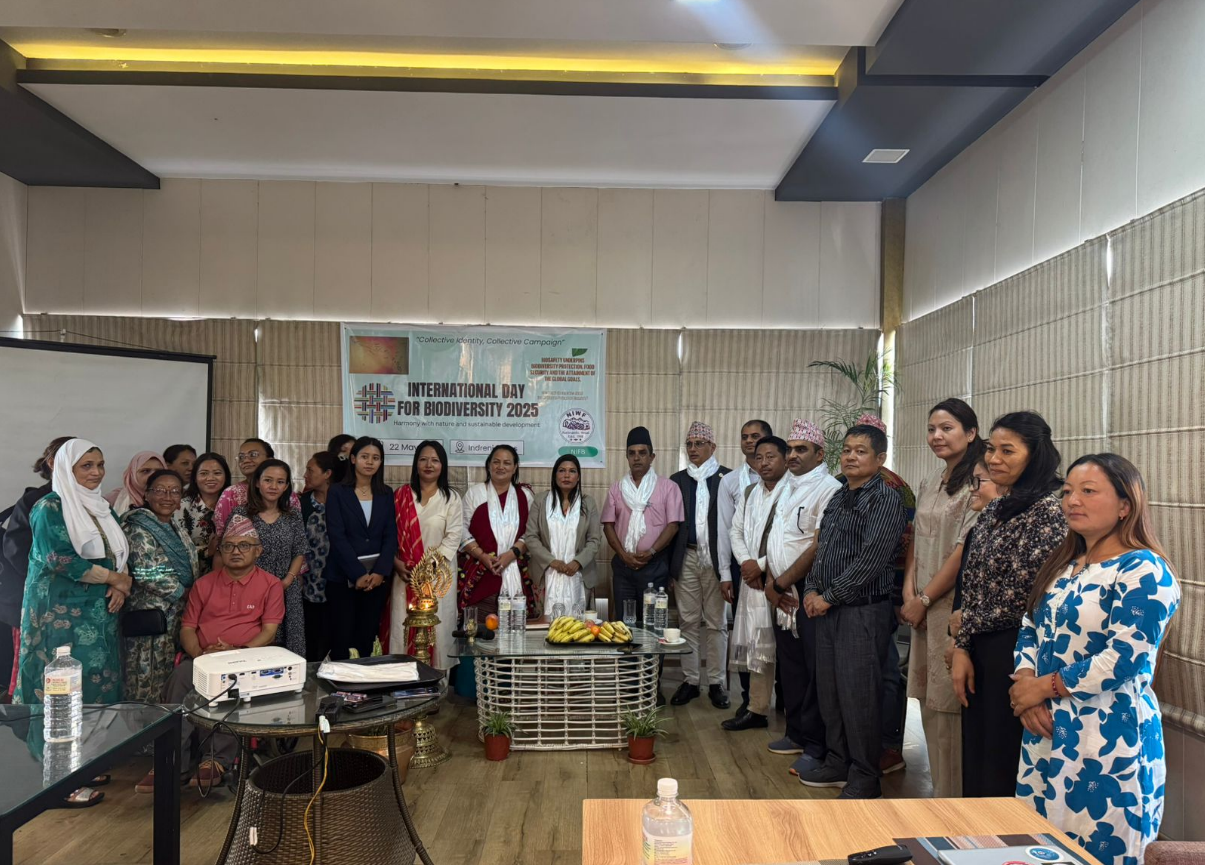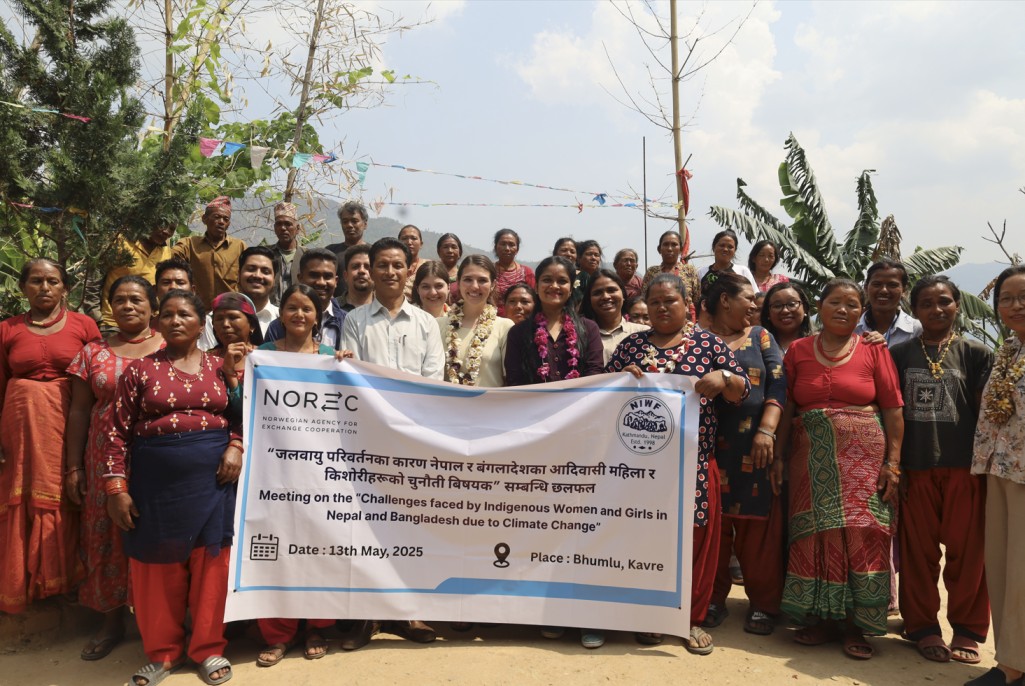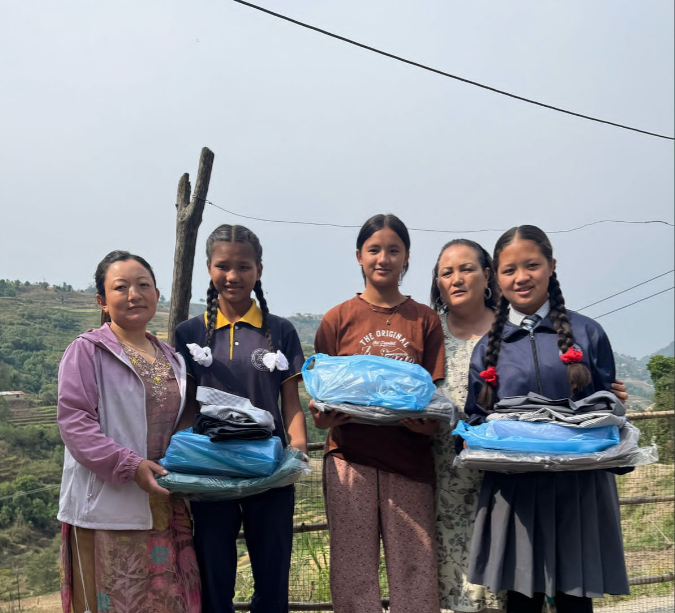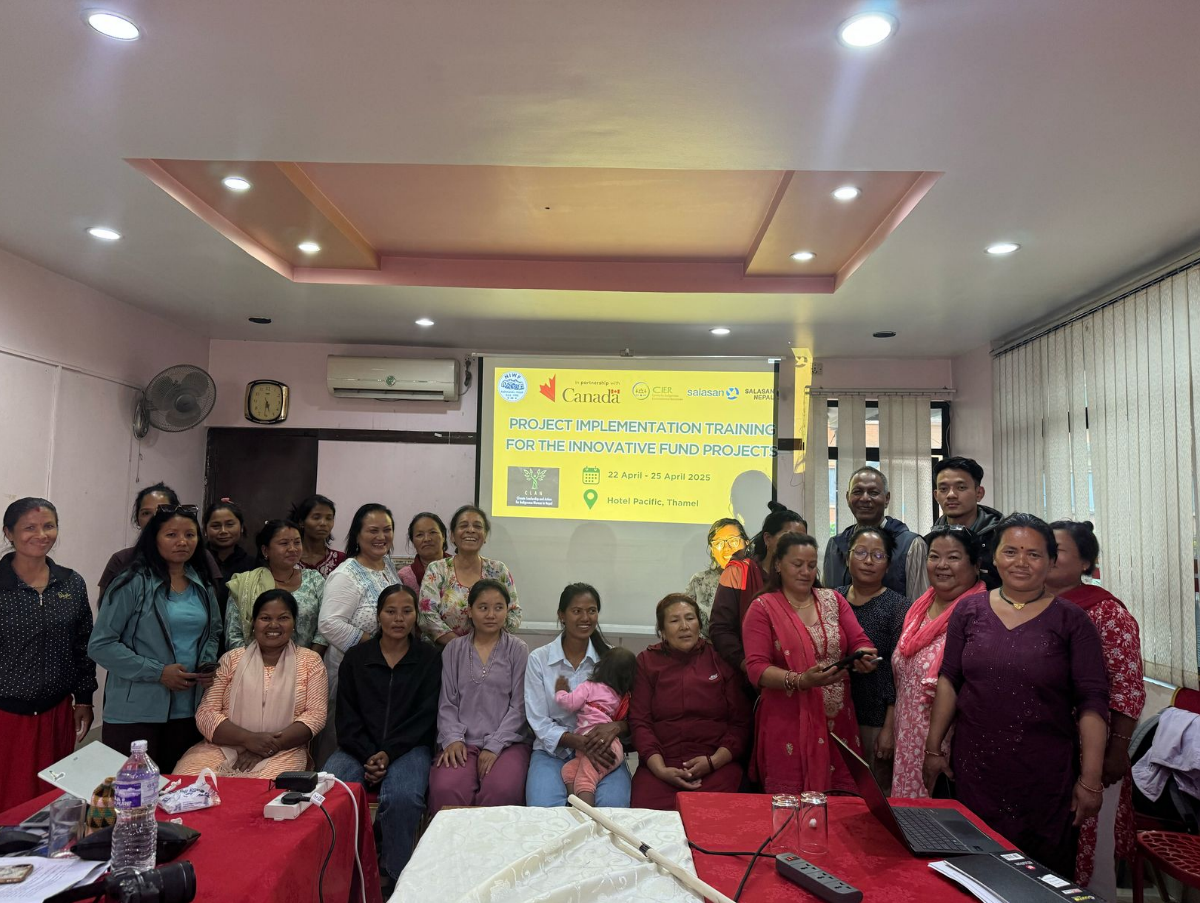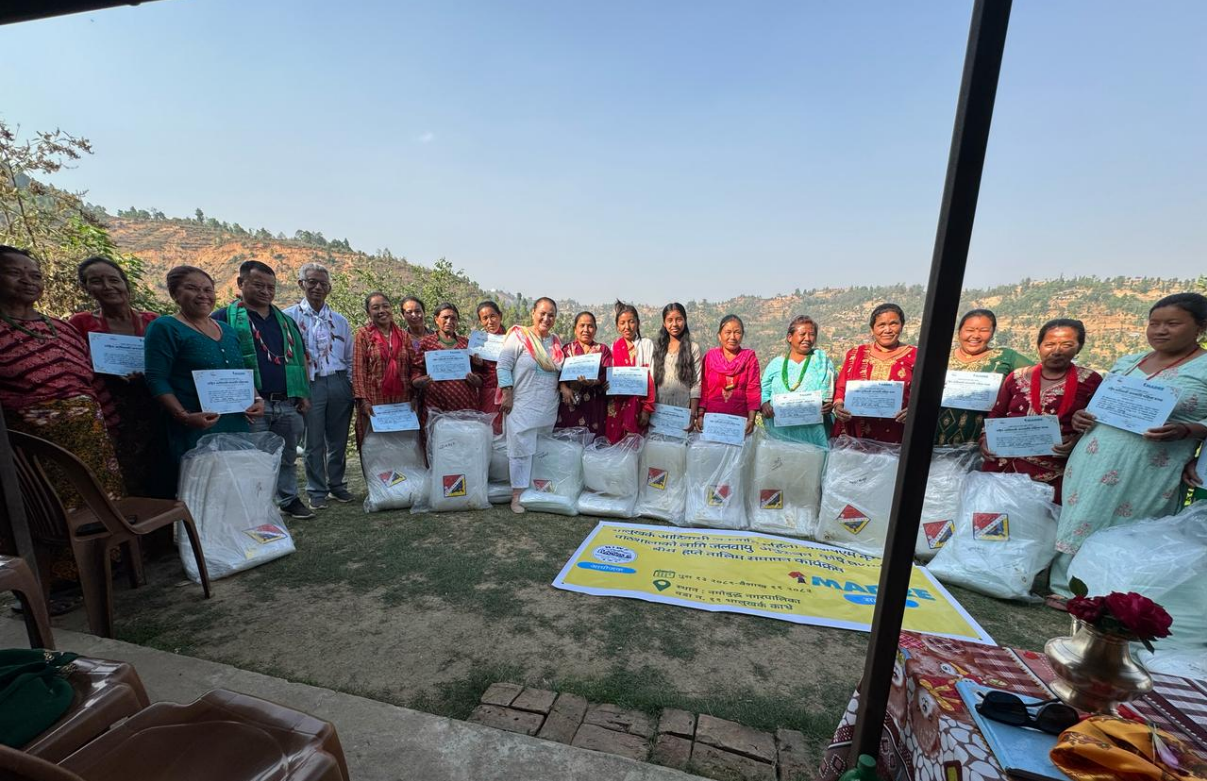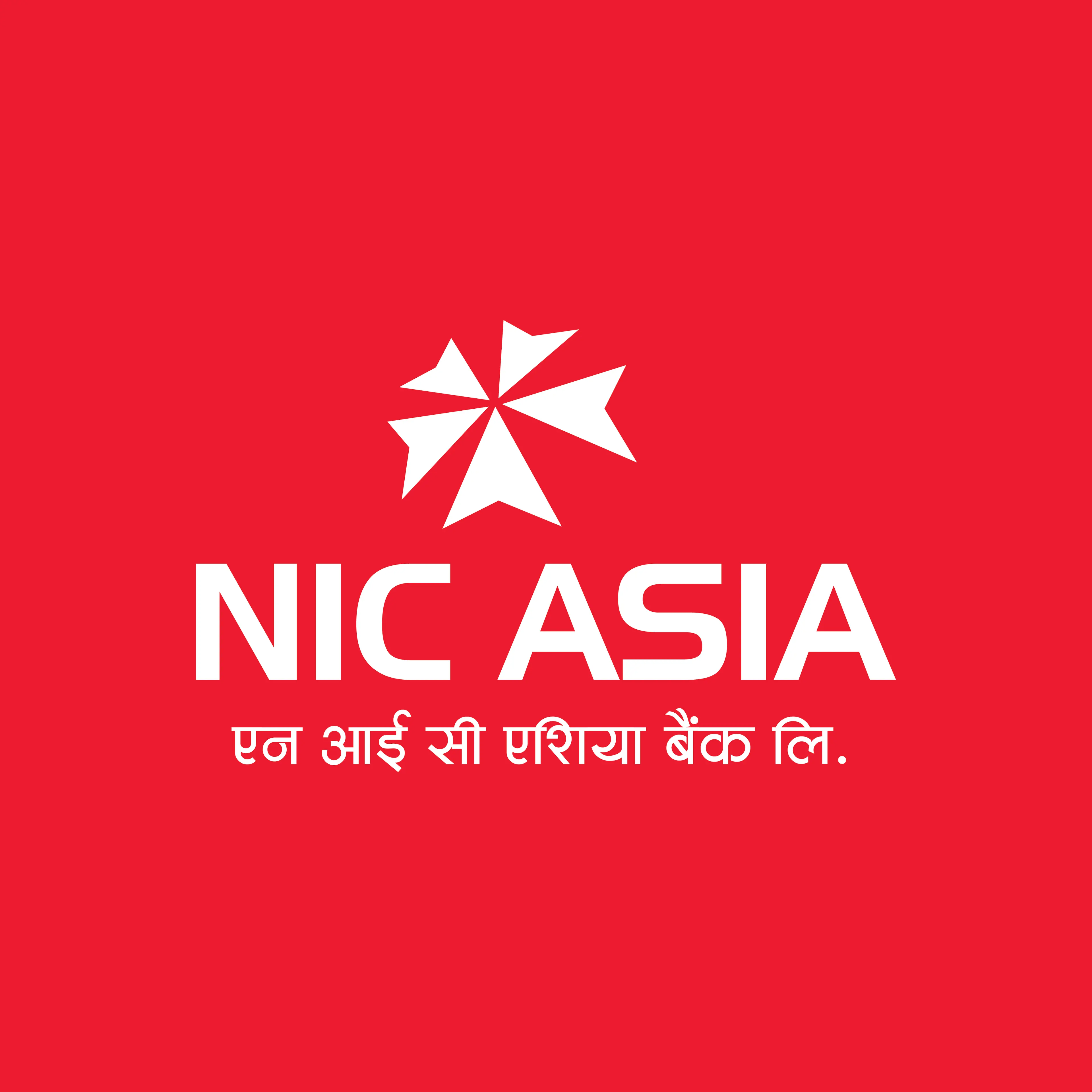
From 9th to 11th July 2025, the National Indigenous Women Forum (NIWF) organized a three-day training on Masculinity, Gender-Based Discrimination, and Social Norms for its staff, board members, and consortium partners—Dalit Women Network and Nepal Muslim Women Welfare Society (NMWWS). The training aimed to deepen understanding of gendered power structures and challenge harmful social norms within diverse communities. The program commenced with opening remarks by NIWF Chairperson Ms. Suni Lama, who highlighted the importance of critical reflection on gender roles, especially in the context of Indigenous and marginalized communities. Ms. Manorama from UN Women also delivered insightful remarks, emphasizing the need for intersectional approaches to gender justice.
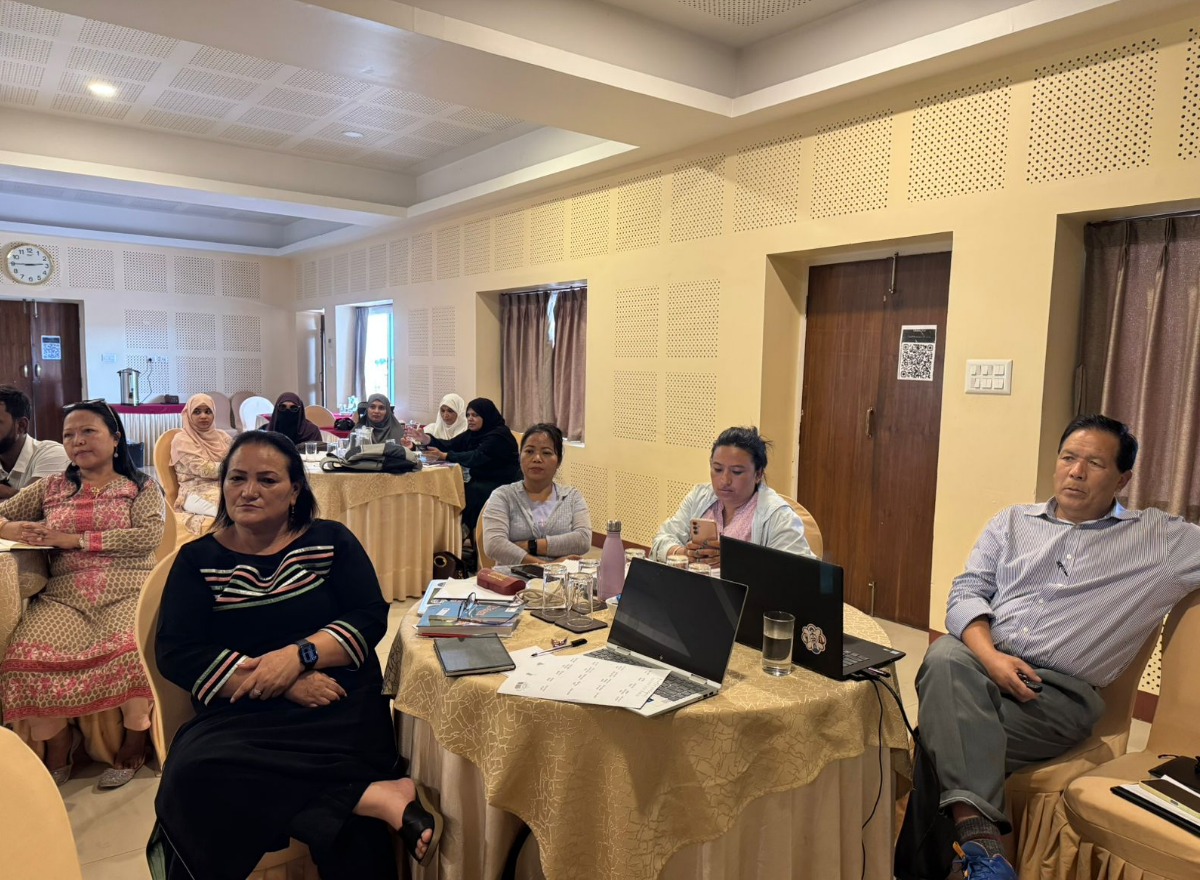
The sessions were facilitated by GESI expert Dr. Sangram Lama, with support from team leader Ms. Pooja Shrestha. Vice Chairperson of NIWF, Ms. Yasso Kanti Bhattachan, delivered a compelling presentation on the Indigenous Peoples' Movement, the Convention on the Elimination of All Forms of Discrimination Against Women (CEDAW), and General Recommendation No. 39 on the rights of Indigenous women and girls. Additionally, Mr. Amrit Sunuwar, Chairperson of Sunuwar Samaj Sewa, presented on the critical role of media in amplifying marginalized voices. He also addressed the media’s frequent bias and its failure to represent the issues of Indigenous and excluded communities adequately. The training created a space for reflection, learning, and collective strategizing toward building inclusive narratives and challenging discriminatory social norms.
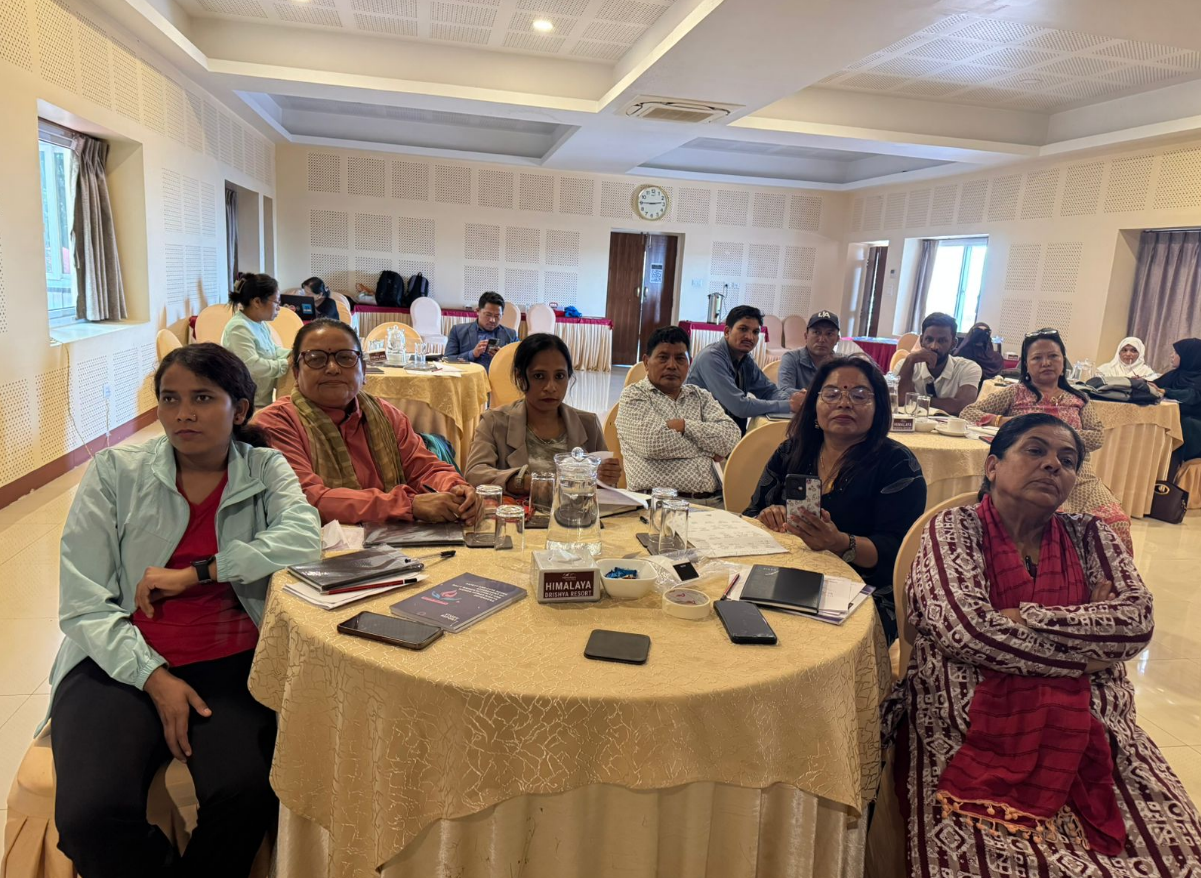
On 6th July 2025, National Indigenous Women Forum (NIWF), in collaboration with the Nepal Federation of Indigenous Nationalities (NEFIN), Indigenous Women Legal Awareness Group (INWOLAG), National Indigenous Disabled Women Association Nepal (NIDWAN), and National Indigenous Women Federation, successfully convened a Validation Workshop on the Universal Periodic Review (UPR) Draft Report, prepared through an Indigenous lens. The workshop aimed to validate the UPR draft report by incorporating critical inputs, feedback, and recommendations from Indigenous Nations and persons with disabilities. This collective effort seeks to ensure that the voices, rights, and lived experiences of Indigenous Peoples are effectively reflected in Nepal’s UPR submission.
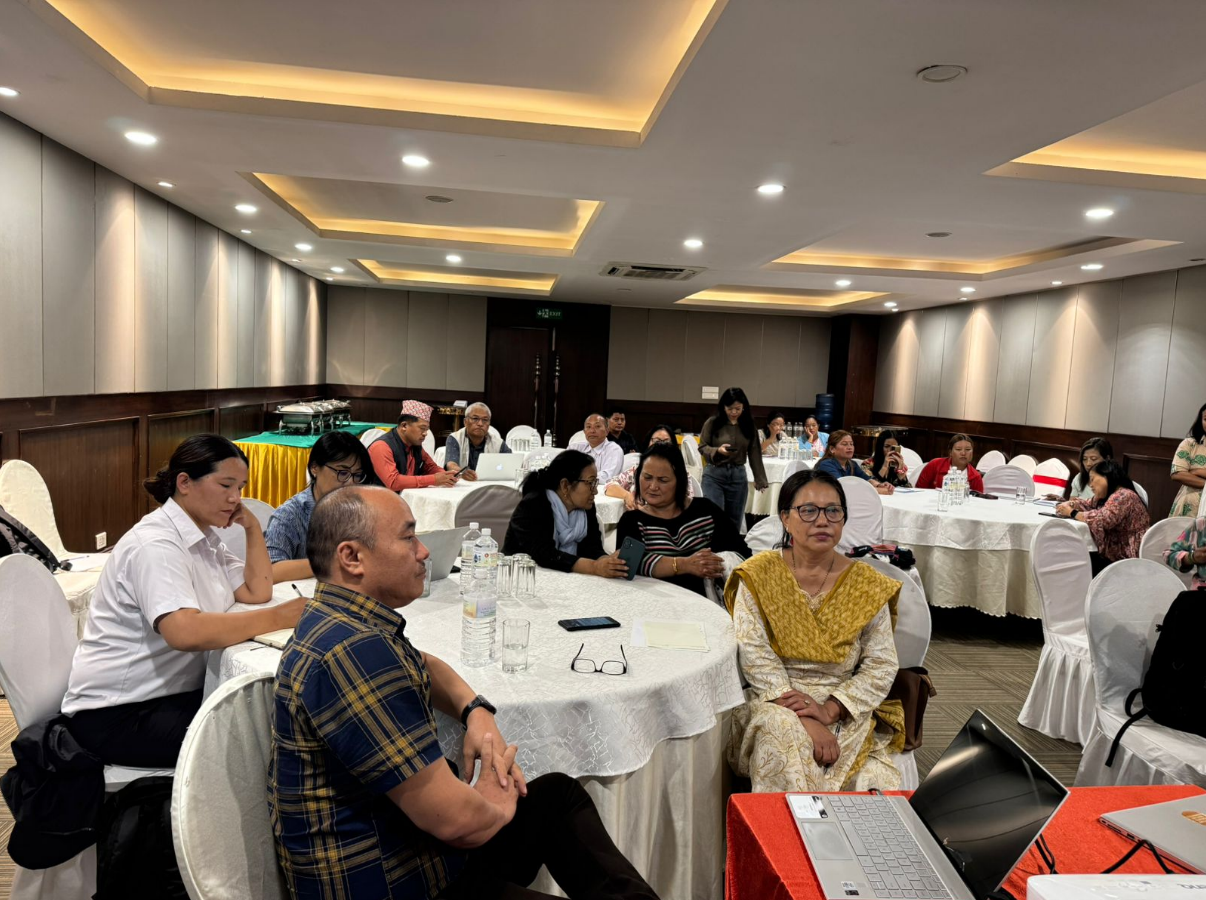
The program was facilitated by Ms. Pratima Gurung, Chairperson of NIDWAN and a prominent Indigenous disability rights activist. Hon. Kiran Kumar Sah, Chairman of the Committee on Women and Social Affairs served as the Chief guest for the program. Mr. Hom Yamphu, Professor at TU and an expert on Indigenous rights and policy advocacy, delivered a comprehensive presentation on the UPR mechanism, its relevance to Nepal, and the process of preparing the draft report. He provided an in-depth walkthrough of the key thematic areas covered in the report, highlighting the gaps in the existing human rights frameworks and policies from Indigenous perspectives. The participants of the workshop included representatives from Indigenous Organizations, Indigenous Disabled persons organizations and Indigenous activist. The attendees actively engaged in reviewing the draft and offered insightful feedback and recommendations based on lived realities, structural barriers, and policy shortcomings. Key areas discussed included land rights, political participation, access to justice, education, climate justice, and accessibility for Indigenous Women, Girls and persons with disabilities.
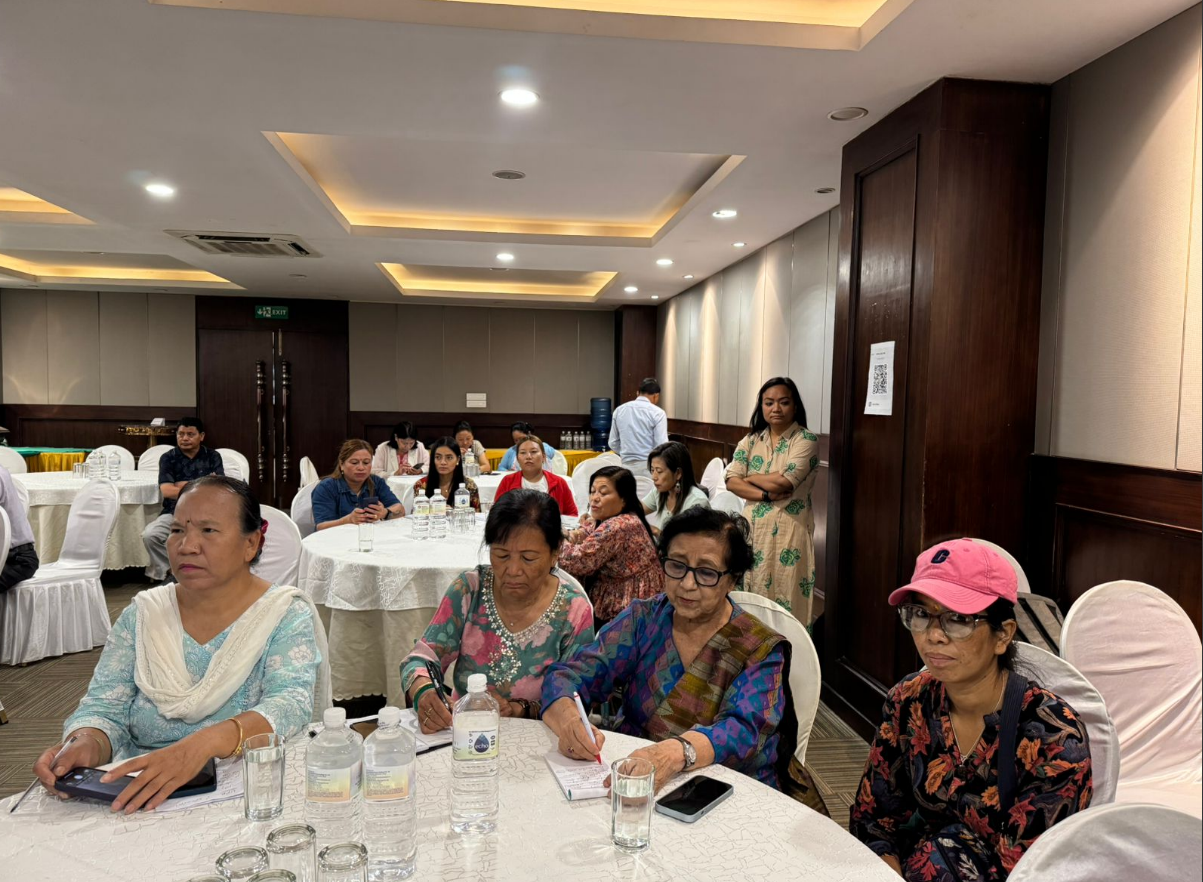
Climate Leadership and Action for Indigenous Women in Nepal is a project implemented by Salasan Consulting Inc. in partnership with the Centre for Indigenous Environmental Resources (CIER), through Salasan Nepal in collaboration with the National Indigenous Women Forum (NIWF). The project aims to build the capacity of 50 Indigenous women leaders from 25 Indigenous climate groups, reaching a total of 750 women across four rural municipalities in the Kavrepalanchok and Sindhupalchok districts. To date, the project has strengthened the knowledge and skills of Indigenous women in the target areas, particularly around climate issues affecting their communities. As the project moves through its implementation phase, the 25 Indigenous climate groups have developed 25 climate adaptation project. This initiative is funded by the Government of Canada to address climate-related challenges in the midhill areas of Nepal.
Salasan Nepal conducted a field visit to Kavrepalanchok and Sindhupalchok districts from June 11 to 13, 2025, and signed agreements with 25 CLAN groups.
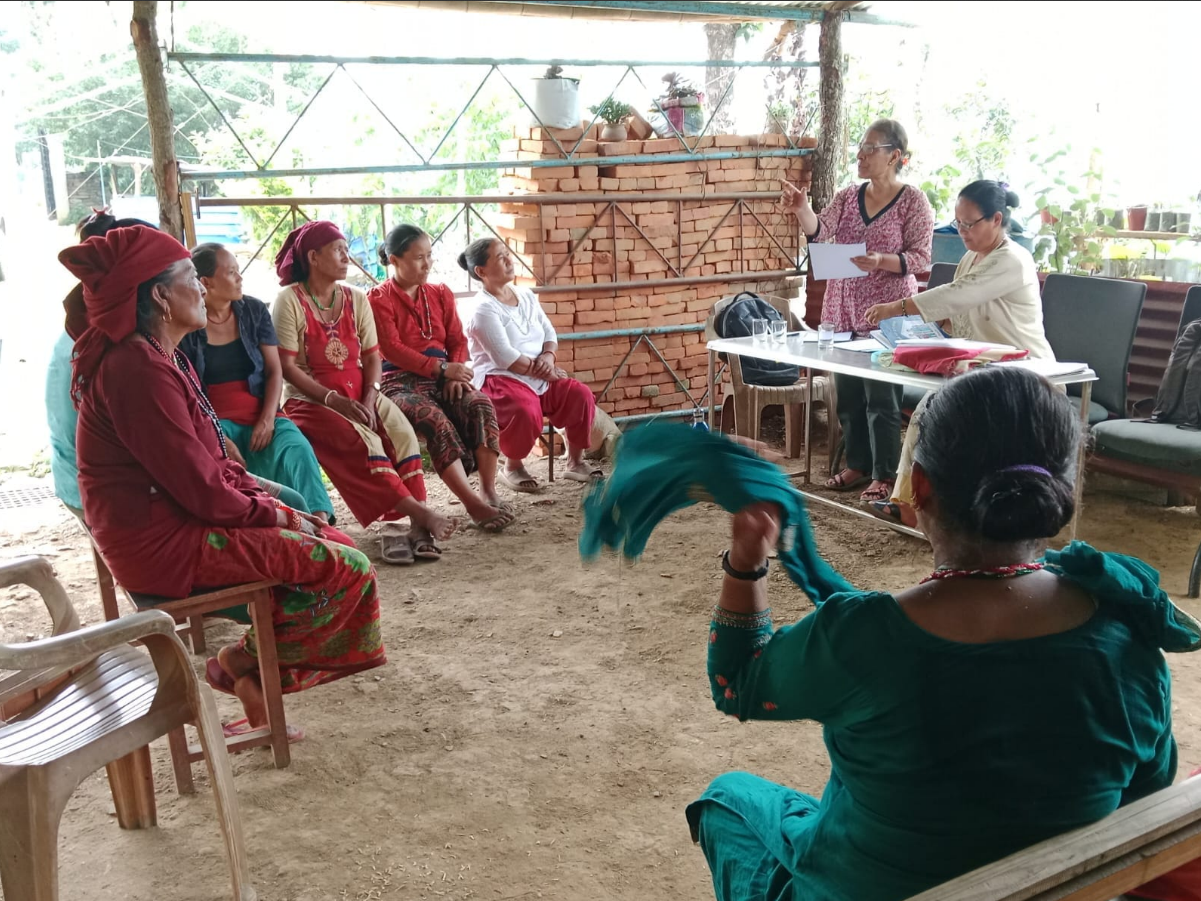
The Innovative Project Grant Fund has been
specifically designed by the 25 climate groups to address the emerging
climate-related issues affecting their communities and daily lives. Each
proposal under the fund targets a range of pressing environmental challenges,
including:
- Landslide
and flood management
- Conservation
and management of water resources
- Livestock
health management, and
- Plantation
of fruit and multipurpose tree species on abandoned farmlands
To irrigate agriculture land 4 climate groups have adopted the construction of rainwater harvesting ponds and tanks. In addition, the project promotes the use of Indigenous skills, knowledge, and practices to conserve and revitalize traditional ecological wisdom in the project areas. This approach not only enhances climate adaptation but also preserves cultural heritage.
The locally developed projects are expected to help address the climate challenges identified by each group. By implementing their own solutions, communities are empowered to benefit directly from the outcomes. Climate change has already significantly affected the project area, particularly through declining agricultural productivity. This has resulted in longer periods of food insecurity (hunger months) and has forced many to migrate both internally and abroad in search of livelihoods.
Male migration, in particular, has led to increased
workloads for women, reducing their participation in decision-making roles
within community groups and project committees. While the absence of men has,
in some cases, increased women's responsibilities and mobility leading to
greater empowerment it has also made them more vulnerable, especially during
overnight stays and solo travel.
To combat these challenges, the project promotes:
- Increased
agricultural production through promotion of organic liquid insectisite
using locally available herbs.
- The
preservation of traditional knowledge and skills through use of locally
available resources and plantation of local speciesism
- Improved
animal health services
- The
adoption of diversified farming practices on previously abandoned
or underused lands
These measures aim to strengthen community resilience, especially in the face of ongoing climate impacts and widespread migration.
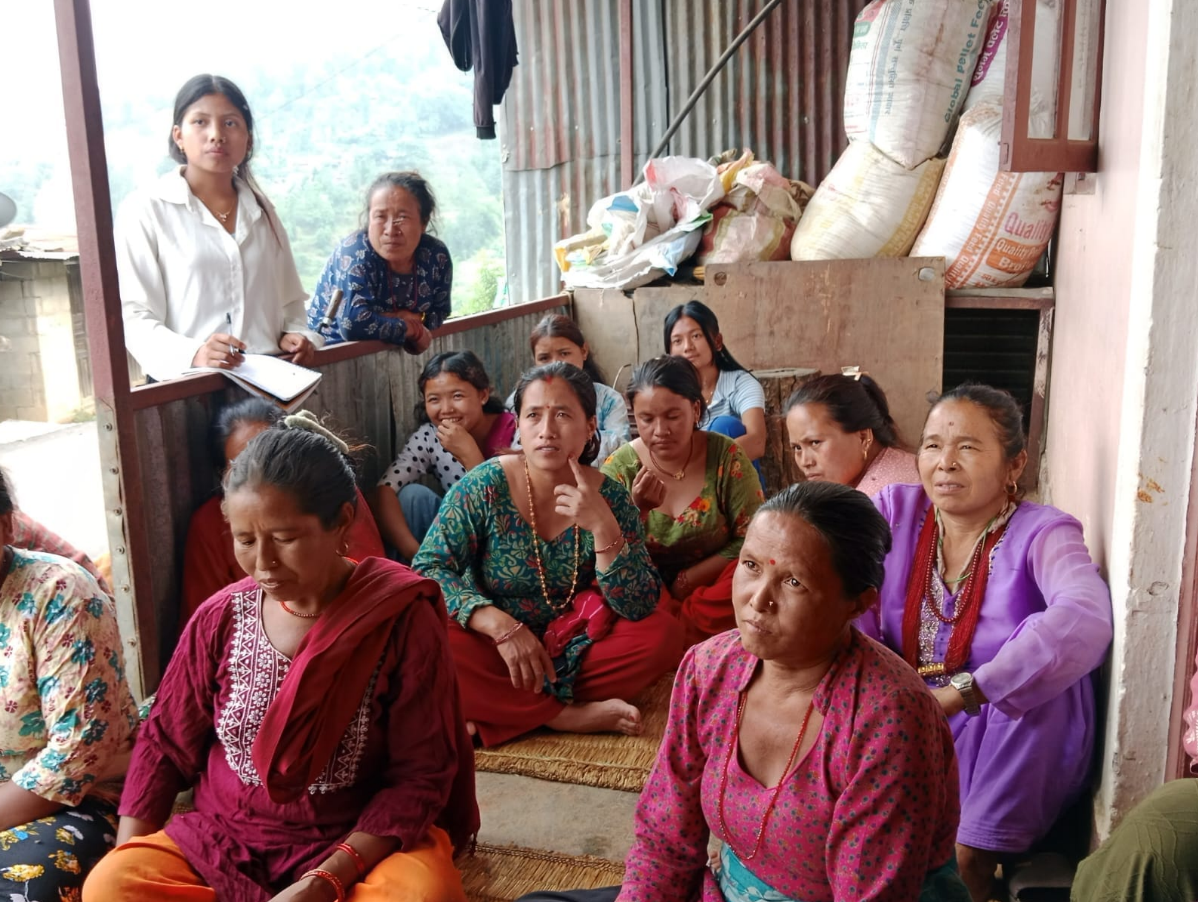

From 9th to 11th June 2025, the International Centre for Integrated Mountain Development (ICIMOD) and the National Indigenous Women Forum (NIWF) jointly organized a workshop titled "Inclusive Conservation: Understanding the Contributions, Leadership, and Challenges of Indigenous Peoples in Nepal." The event was held at ICIMOD Headquarters in Lalitpur and continued at Nagarkot. The workshop's chief guest was Hon. Rupa B.K. State Minister for Forest and Environment, while special guests included Dr. Pema Gyamtsho, Director General of ICIMOD, Hon. Ram Bahadur Thapa Magar of Indigenous Nationalities Commission (INC), Hon. Subodh Singh Tharu of the Tharu Commission; Ms. Suni Lama, Chairperson of NIWF, and Mr. Divas Rai, General Secretary of the Nepal Federation of Indigenous Nationalities (NEFIN).
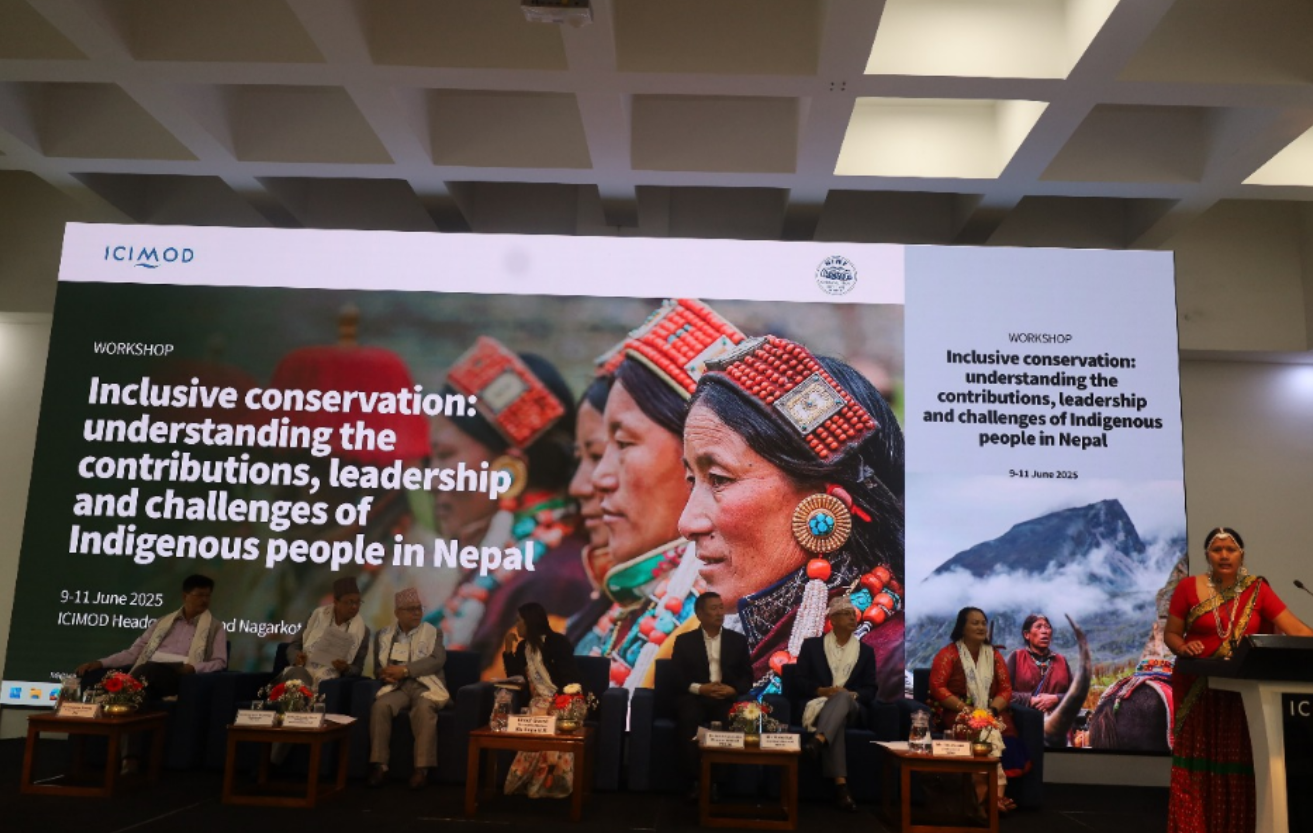
The workshop brought together a diverse group of participants and representatives from key Indigenous and civil society organizations, including: NIWFederation, INWOLAG, NIDA, LAHURNIP, FIKA, YFIN, Limi Youth Society, ICCA Network Nepal, FKDF, NFDIN, Maiti Nepal, CIPRED, Tharu Kalyankari Sabha, Sana Udhyog, Tharu Mahila Sabha, NAST and Sunuwar Samaj Sewa.
Key thematic areas covered during the program included:
- Target 3 of Nepal’s National Biodiversity Strategy and Action Plan (NBSAP)
- OECM (Other Effective Area-Based Conservation Measures)
- Indigenous and Traditional Territories (ITT)
- Indigenous and Community Conserved Areas (ICCA)
This workshop served as an important platform to highlight the crucial role of Indigenous Peoples in biodiversity conservation, recognize their traditional knowledge and stewardship practices, and strengthen their leadership in policy-level conservation efforts in Nepal.
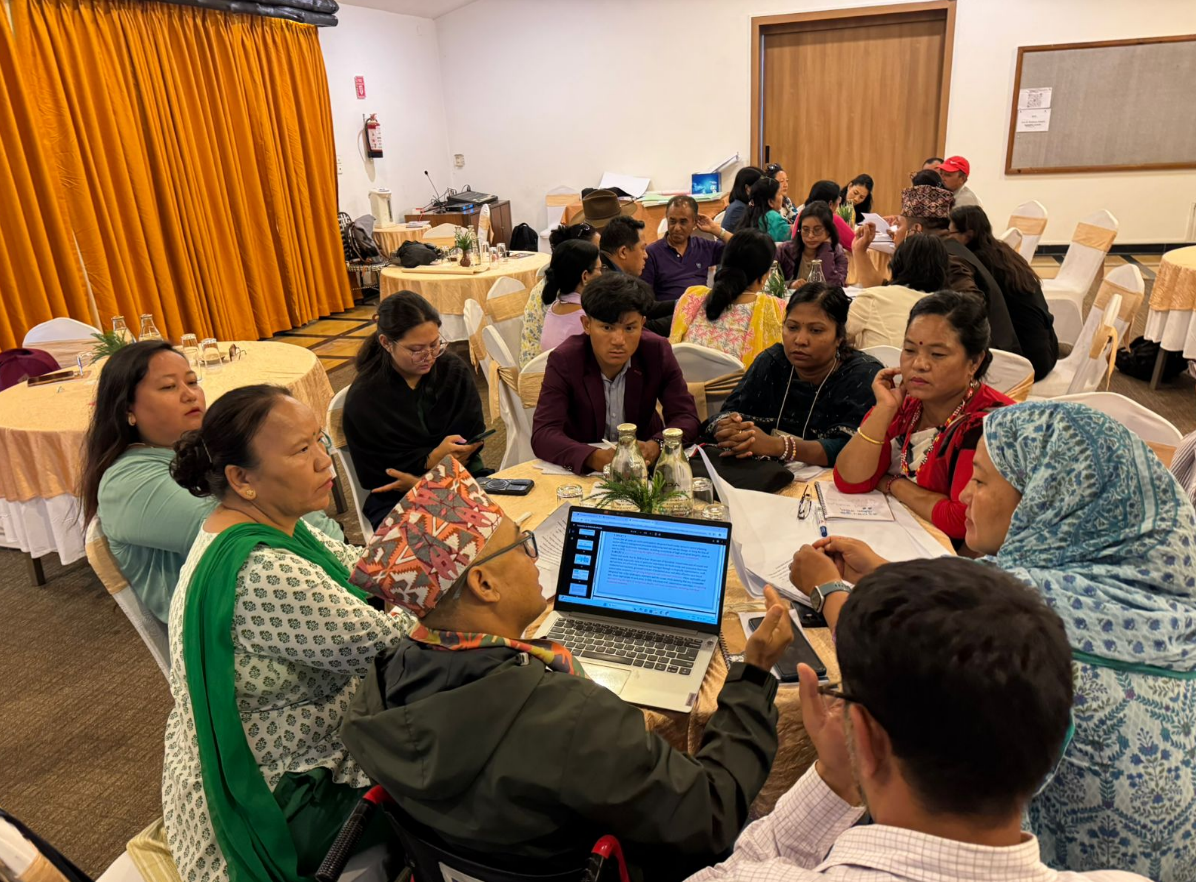
In celebration of World Environment Day 2025, the National Indigenous Women Forum (NIWF) successfully organized a community-level event in Bishambhara, Shankharapur Municipality, Kathmandu under the global theme "Beat Plastic Pollution." The objective of the program was to raise awareness about environmental protection and highlight the importance of reducing plastic pollution, especially in rural and Indigenous communities. The event engaged 27 Tamang women farmers from the local Bishambhara Tamang Women Farmers' Group, promoting their role as stewards of sustainable agricultural practices and environmental conservation. As part of the celebration, Bodhi seed malas (Buddha chitta) were distributed to all participating women, symbolizing peace, awareness, and a spiritual connection to nature. This activity was supported through funding from Mama Cash.
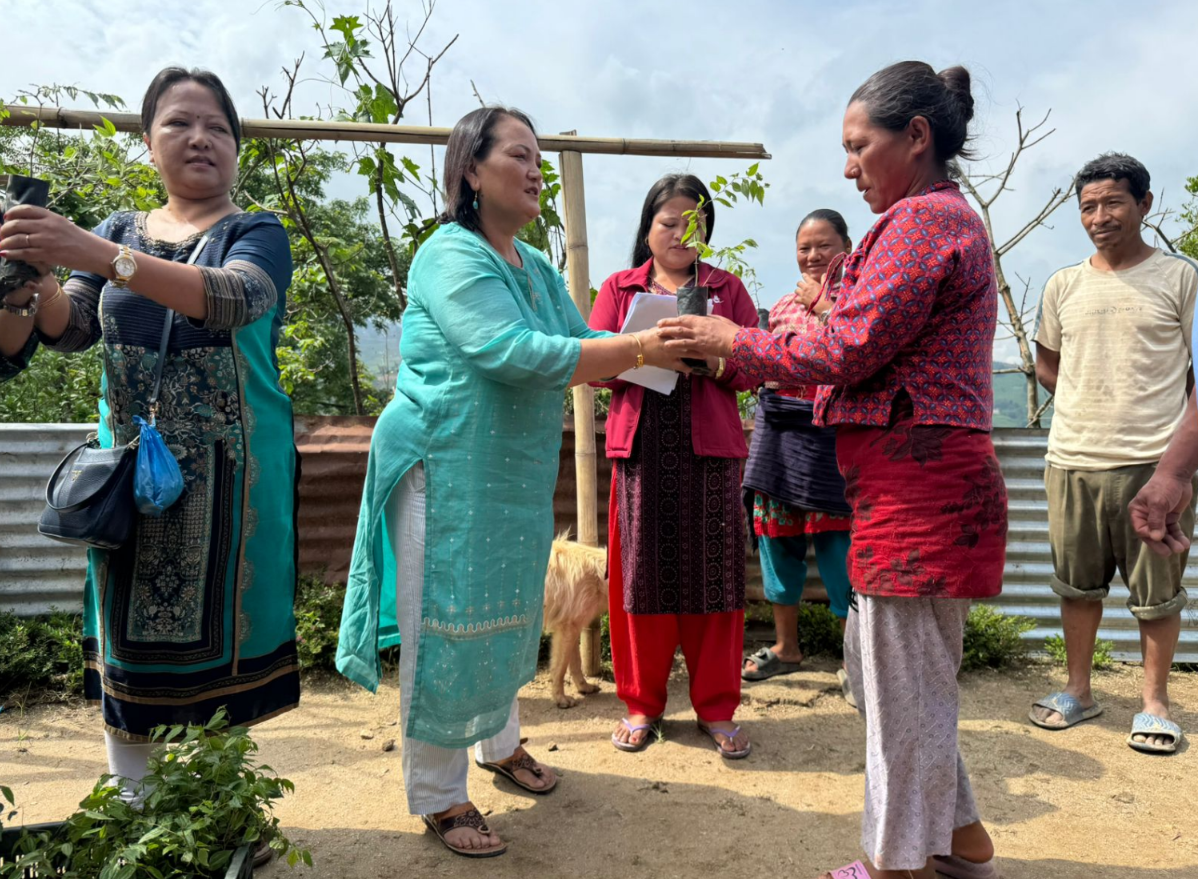
The program was graced by the presence of Ms. Suni Lama, Chairperson of NIWF, Ms. Sushila Maya Gole, Treasurer, Ms. Puja Shrestha, Team Leader, Ms. Anju Gurung, Program Officer, Ms. Sanila Lama, Field Coordinator, Ms. Kavita Magar, Intern, as well as Ms. Junta Tamang, Chairperson of the Bishambhara Tamang Women’s Group, and other members of the group.
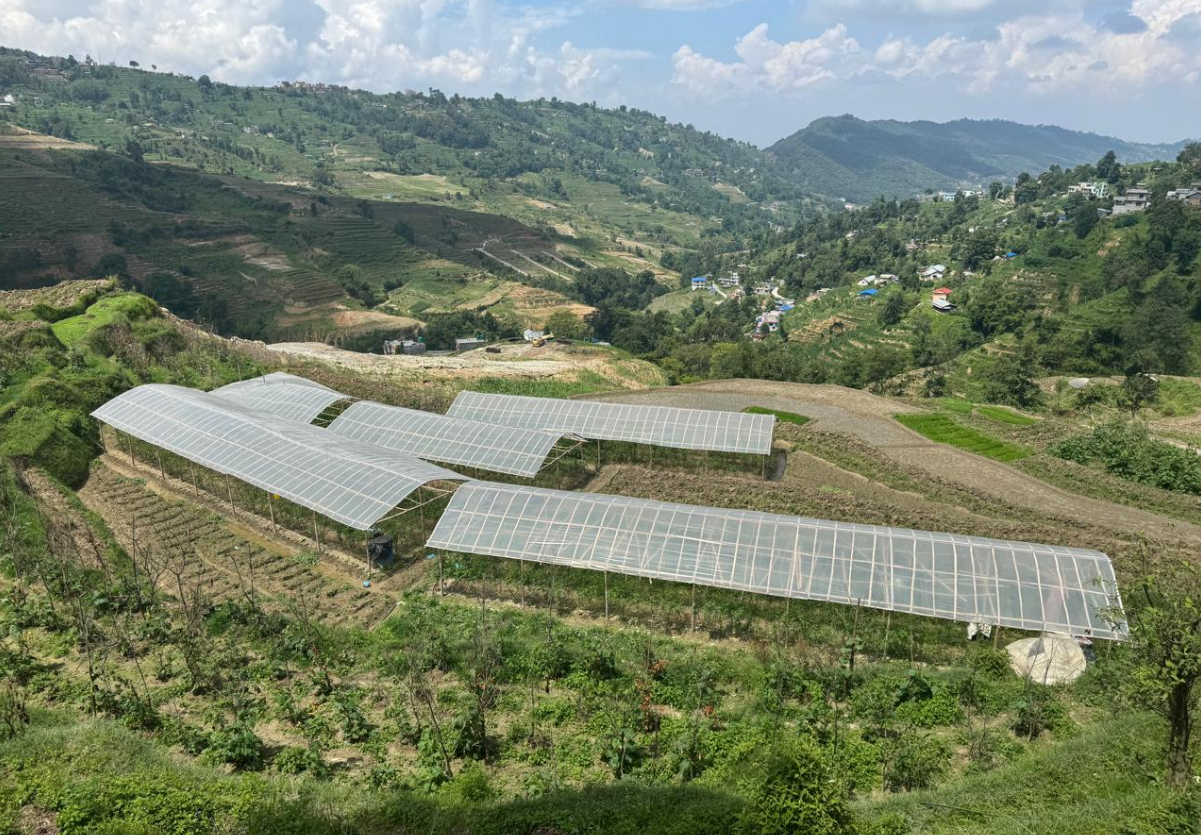
On 22 May 2025, National Indigenous Women Forum (NIWF) celebrated World Biodiversity Day under the global theme, “Harmony with Nature and Sustainable Development.” The event brought together government representatives, development partners, Indigenous leaders, and civil society actors to reaffirm the vital role of Indigenous Peoples in biodiversity conservation and sustainable development. The program was facilitated by Mr. Kamal Kumar Rai, Indigenous rights activist and environmental advocate, who guided the discussions around the intersections of Indigenous knowledge, biodiversity, and policy. The event was graced by Hon. Rupa B.K., State Minister for Forests and Environment, as the Chief Guest. In her remarks, Hon. B.K. acknowledged the historical and ongoing contributions of Indigenous communities in preserving biodiversity and committed to ensuring the inclusion of Indigenous voices in Nepal’s National Biodiversity Strategy and Action Plan (NBSAP).
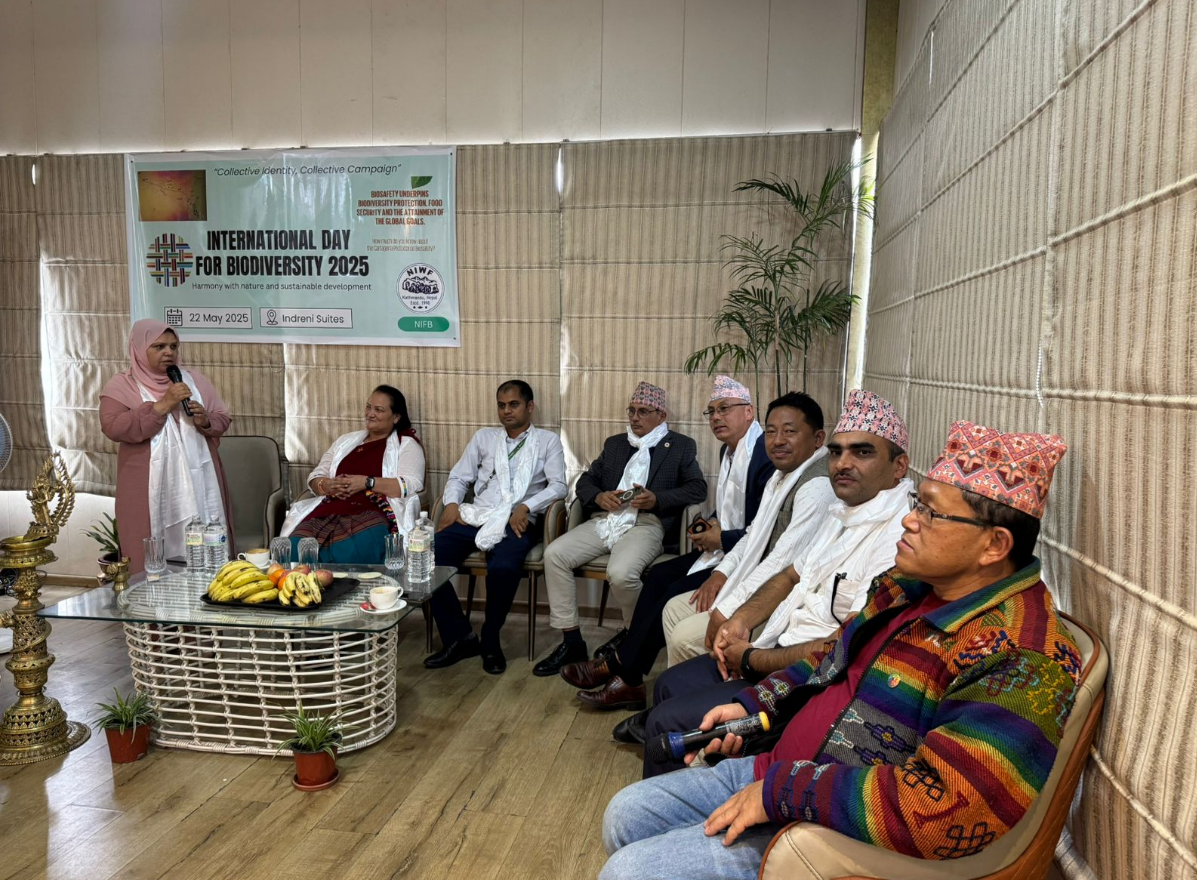
Special guests at the event included: Dr. K.C. Paudel, Team Leader of NBSAP, Mr. Rajendra Dhungana, Under Secretary, Ministry of Forests and Environment, Mr. Raghu Ram Parajuli, Senior Scientific Officer, Department of Plant Resources, Mr. Bijaya Singh, Assistant Resident Representative, UNDP, Mr. Divas Rai, General Secretary, Nepal Federation of Indigenous Nationalities (NEFIN), Ms. Seema Khan, Chairperson, Nepal Muslim Women Welfare Society, Mr. Amrit Sunuwar, Chairperson, Sunuwar Samaj, Mr. Fulman Bal, General Manager, Nepal Television.
Each speaker shared valuable insights on the importance of World Biodiversity Day and reaffirmed their commitment to promoting inclusive, rights-based, and ecologically balanced development. They highlighted the urgent need to protect Indigenous knowledge systems, land rights, and traditional practices as essential components of biodiversity conservation. The program concluded with closing remarks by Ms. Suni Lama, Chairperson of NIWF, who expressed gratitude to all participants and reaffirmed NIWF’s commitment to advocating for the inclusion of Indigenous perspectives in national and global environmental policies.
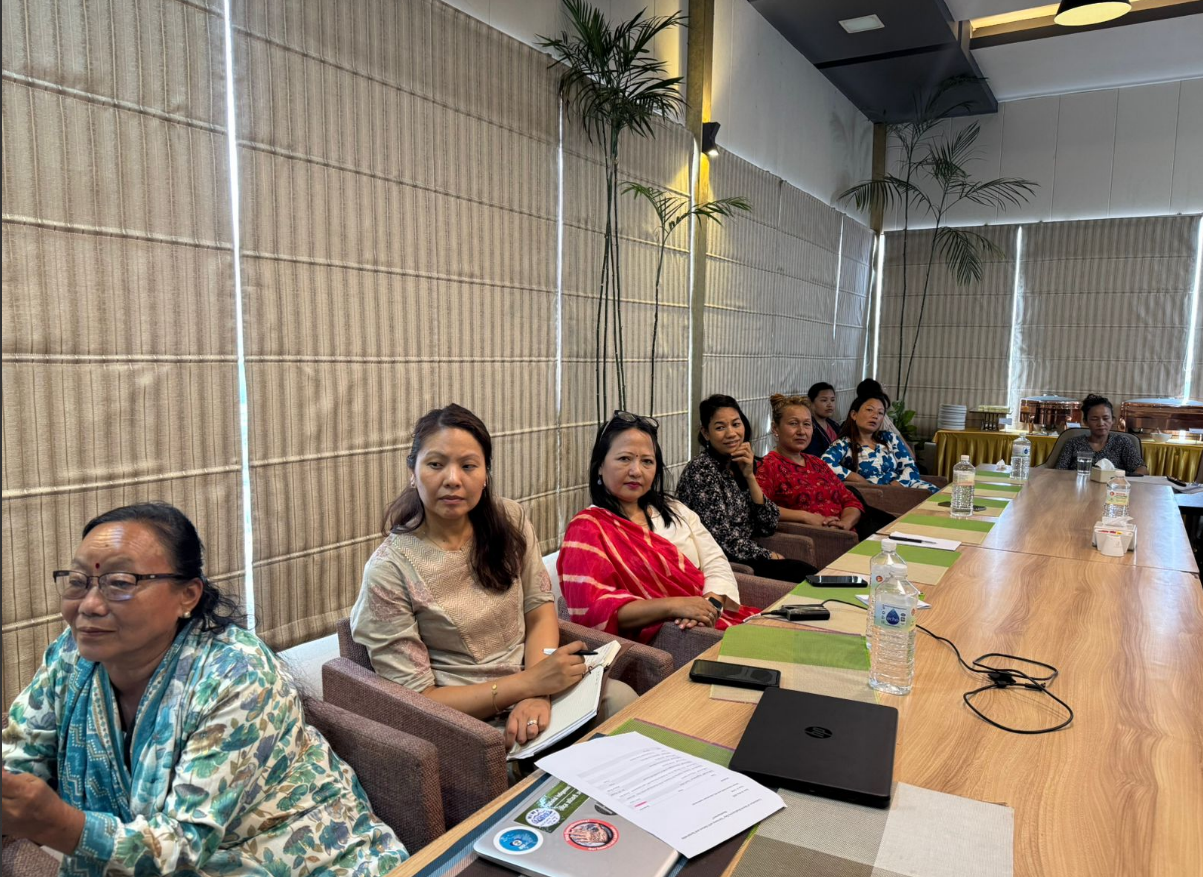
On 13th May 2025, the National Indigenous Women Forum (NIWF) organized a meeting titled “Challenges Faced by Indigenous Women and Girls in Nepal and Bangladesh Due to Climate Change” in Ward No. 6 of Bhumlu Rural Municipality, Kavrepalanchowk. This meeting served as a cross-border exchange of experiences, perspectives, and strategies between Indigenous women leaders from Nepal and Bangladesh, with a focus on how climate change disproportionately affects Indigenous communities especially women and girls. The program brought together the Indigenous women’s group from NIWF’s Climate Leadership and Action for Indigenous Women in Nepal (CLAN) project, two youth volunteers from Bangladesh, the team from the Norwegian Agency for Exchange Cooperation (NOREC), and NIWF staff. The diverse representation at the meeting allowed for an engaging and reflective dialogue on shared challenges, grassroots resilience, and the urgency of strengthening climate leadership among Indigenous women and girls.
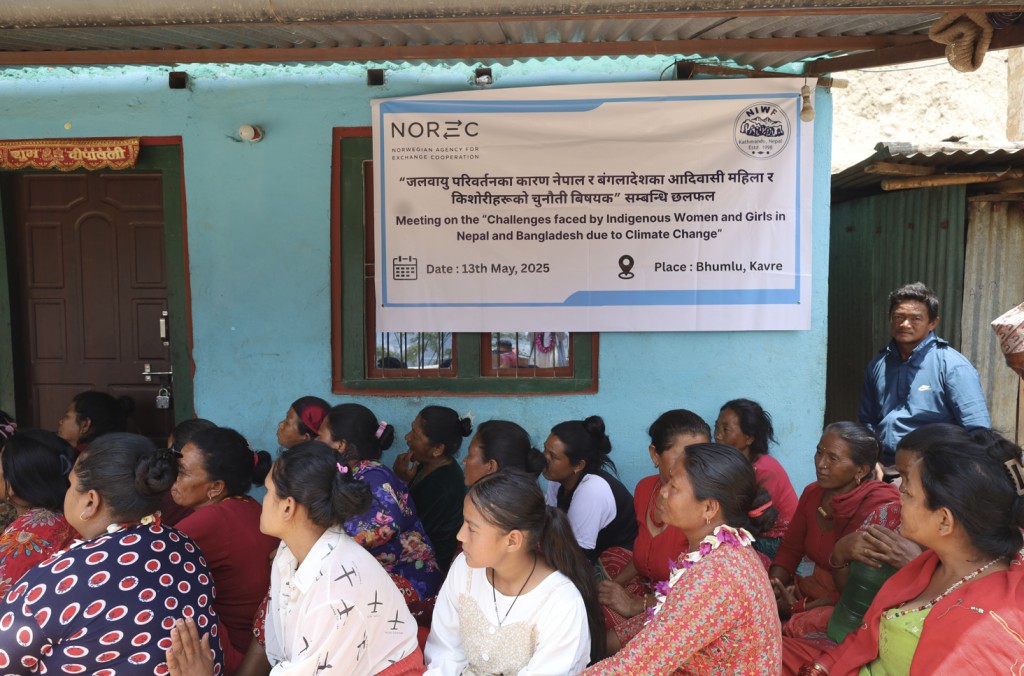
The Chairperson of Bhumlu Rural Municipality also joined the session and delivered remarks underlining the vital role of Indigenous communities in climate action. He emphasized the importance of supporting community-led initiatives and empowering Indigenous women to take leadership roles in climate adaptation and decision-making. He also acknowledged NIWF’s efforts in strengthening local capacities and expressed the municipality’s willingness to collaborate more closely on such inclusive and transformative projects. The meeting fostered mutual learning and solidarity between the participants, affirming that although the specific geographic and cultural contexts may differ, the systemic challenges faced by Indigenous women due to climate change are strikingly similar. Participants agreed on the need for continued cross-border dialogue, greater investment in Indigenous-led solutions, and stronger advocacy to ensure Indigenous voices are heard in national and international climate policymaking spaces.
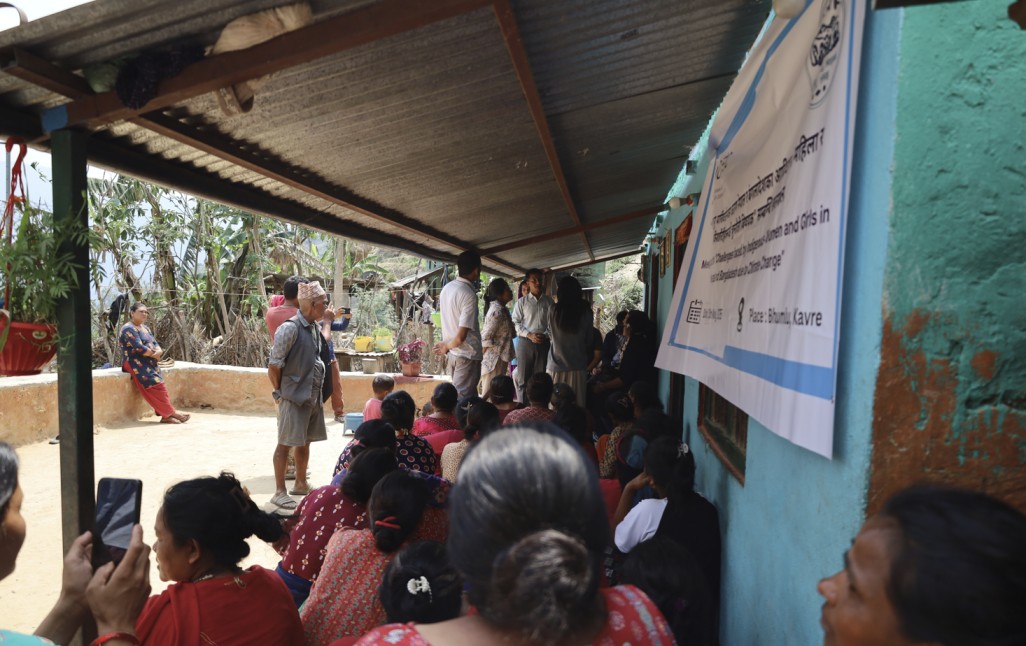
National Indigenous Women Forum (NIWF), with the support of MADRE, distributed educational materials including school uniforms, shoes, bags, stationery, and rice to three Indigenous girl students at Bishambhara, Ward No. 5 of Shankharapur Municipality, Kathmandu. Ms. Suni Lama, Chairperson of NIWF, handed over the materials to the recipients under the Indigenous Girls Opportunity Fund (IGOF).
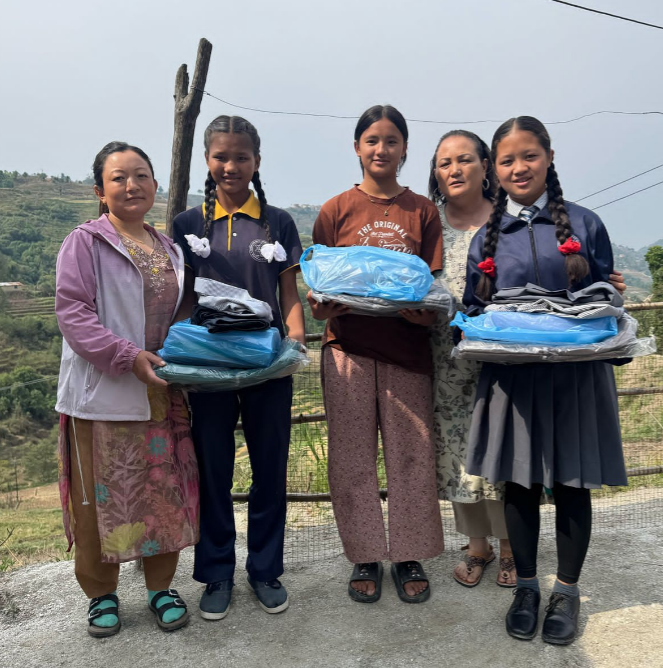
National Indigenous Women Forum (NIWF) with the support of MADRE, provided educational scholarships to two Thami girls from Kalinchok Rural Municipality, Dolakha. The support included school uniforms, shoes, school bags, notebooks, pens, and pencils. The scholarship recipients, currently studying in Grades 4 and 8, received the materials during a distribution event held on Wednesday in Sundrawati, Ward No. 9.
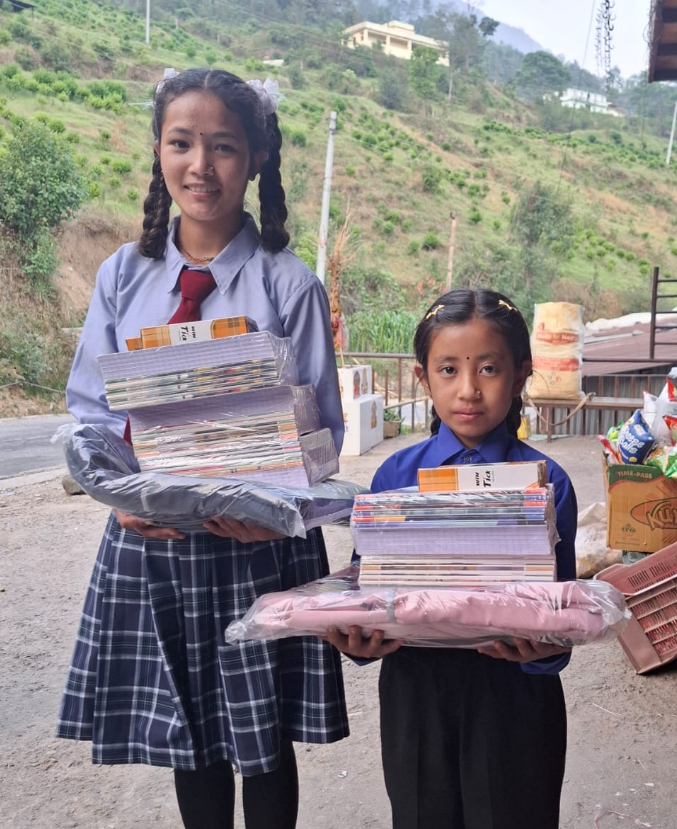
The scholarship is part of the Indigenous Girls Opportunity Fund (IGOF), which was established in 2023. Since its inception, the Fund has been awarding annual scholarships to diligent and economically marginalized Indigenous students through NIWF. In addition to the educational supplies, the scholarship also covered the full tuition fees for the academic year for both students ensuring they can continue their education without financial barriers.
From April 22 to 25, 2025, SALASAN Nepal, in collaboration with the National Indigenous Women Forum (NIWF), successfully conducted a four-day Project Implementation Guideline Training in Kathmandu for the recipients of the Innovative Climate Initiative Fund (ICIF). The training brought together 50 Indigenous Women leaders and representatives from Bhumlu, Indrawati, Chaurideurali, and Balefi Rural Municipalities to build their capacity to implement and address climate related issues faced by the indigenous women and other community members in the CLAN project area of 4 Rural Municipalities. The Climate Leadership and Action for Indigenous Women in Nepal is designed to enhance the capacity of Indigenous Women’s groups by equipping them with essential knowledge and practical tools for effective project planning, implementation, monitoring, and reporting—ultimately empowering them to lead sustainable, community-driven climate and development initiatives.
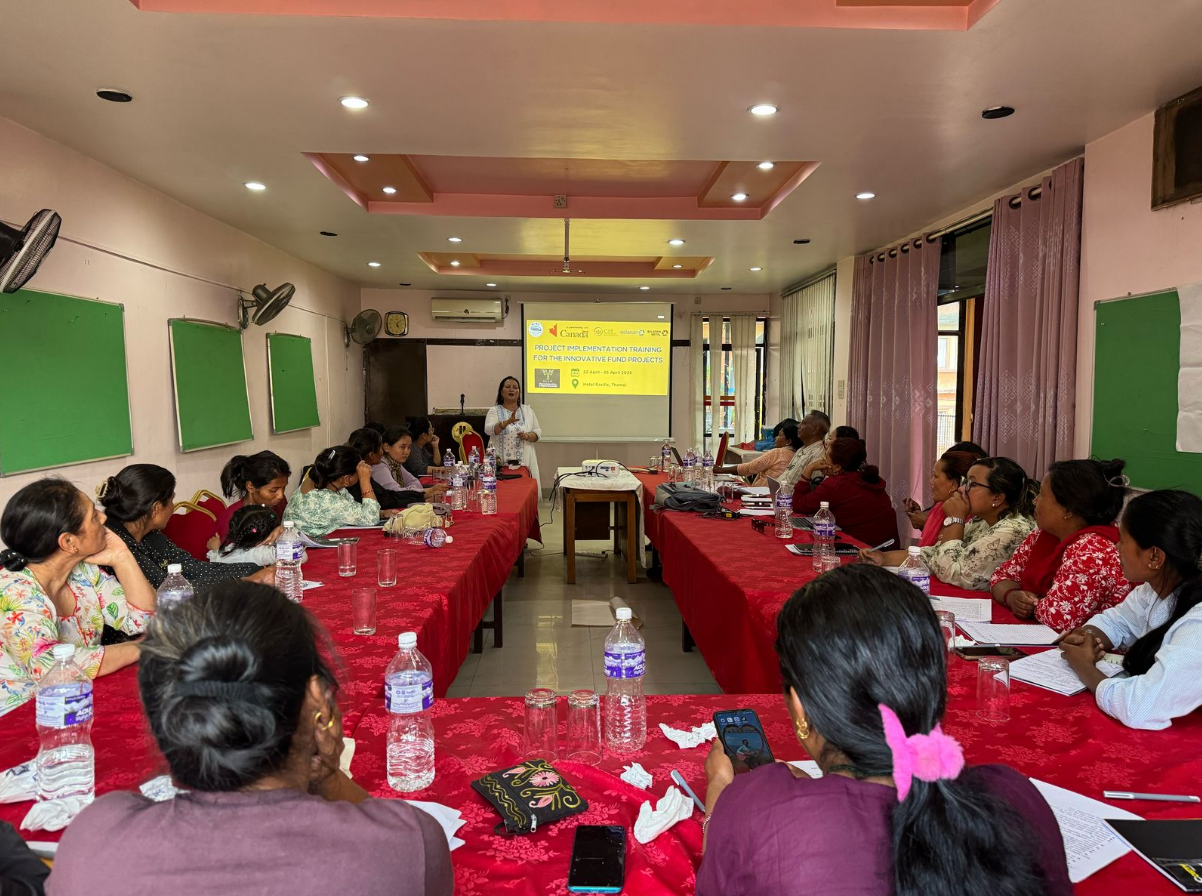
Divided into two focused phases, the first two days covered the planning and execution of construction-based climate initiatives, while the latter two days centered on plantation-related projects. A key highlight of the training was the coming up with detailed work plans by all 25 climate groups demonstrating strong community ownership, inclusive planning, and a results-oriented approach. These presentations showcased their commitment to transparency, accountability, and local engagement in driving climate resilience. In addition to technical skills, the training also focused on building participants’ capacity in financial management. Participants learned practical approaches to managing project funds transparently and efficiently, including the importance of collecting at least three quotations before purchasing materials—ensuring fair pricing and accountability. They were also introduced to basic auditing practices, helping them understand how to maintain proper financial records, prepare documentation for audits, and uphold financial integrity throughout the project cycle. These skills are essential for fostering transparency and trust within their communities and with funding partners. By strengthening the leadership and technical skills of Indigenous women-led groups, the training has laid a strong foundation for impactful climate action at the grassroots level—led by the very communities most affected by climate change.
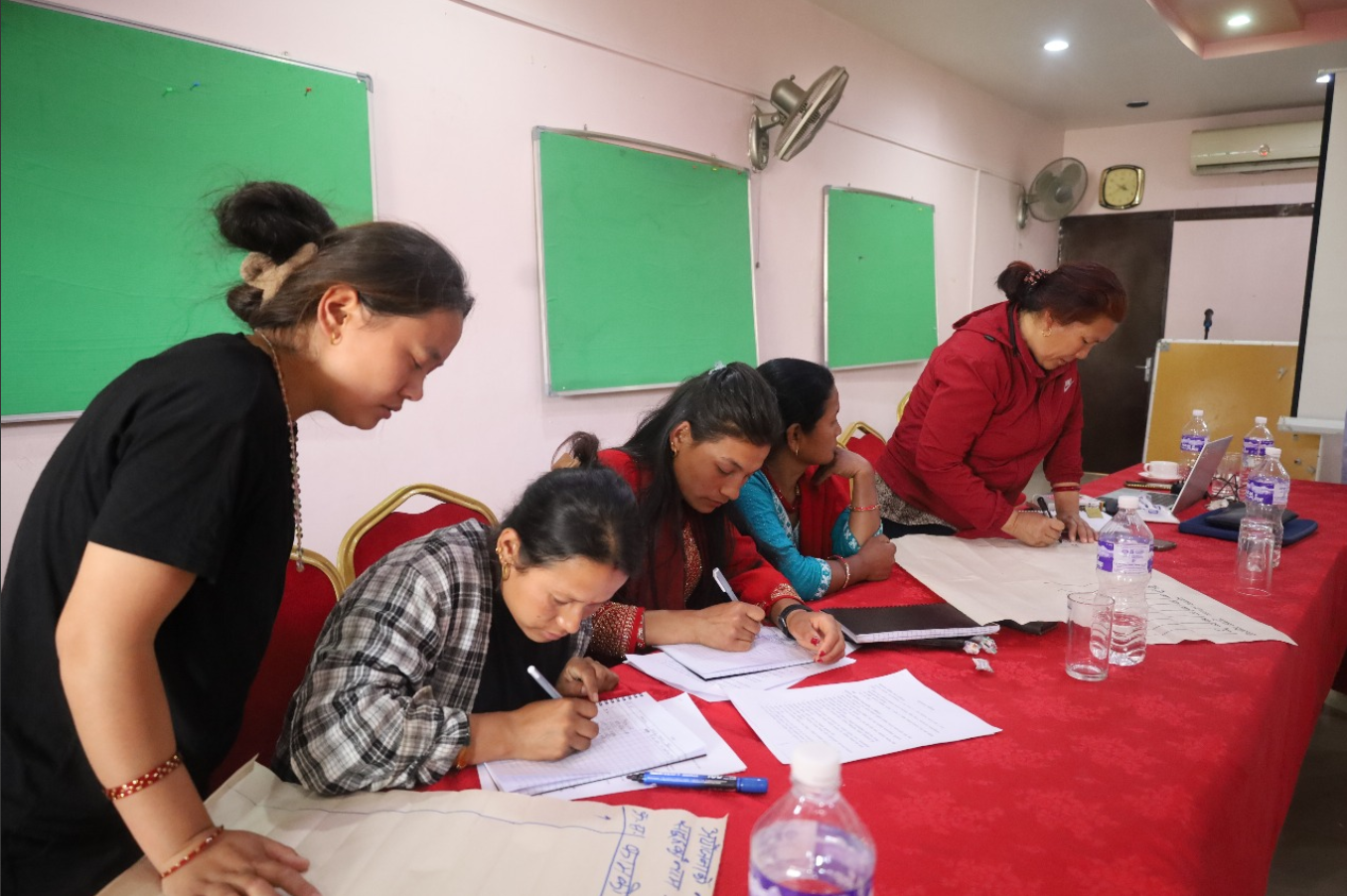

On April 24, 2025, National Indigenous Women Forum (NIWF), with the support from MADRE, organized a Tunnel Plastic Distribution Program in Bhalukharka, Namobuddha Municipality-11, Kavrepalanchowk. The program aimed to support Indigenous Women farmers by providing tunnel plastic materials to enhance climate-resilient agricultural practices. A total of 20 women farmers from the Bhalukharka Indigenous Women Farmers IPM Group received the materials along with certificates of participation. The event also marked the successful completion of a 20-week Climate-Adaption Agricultural System training focused on climate-resilient farming systems.
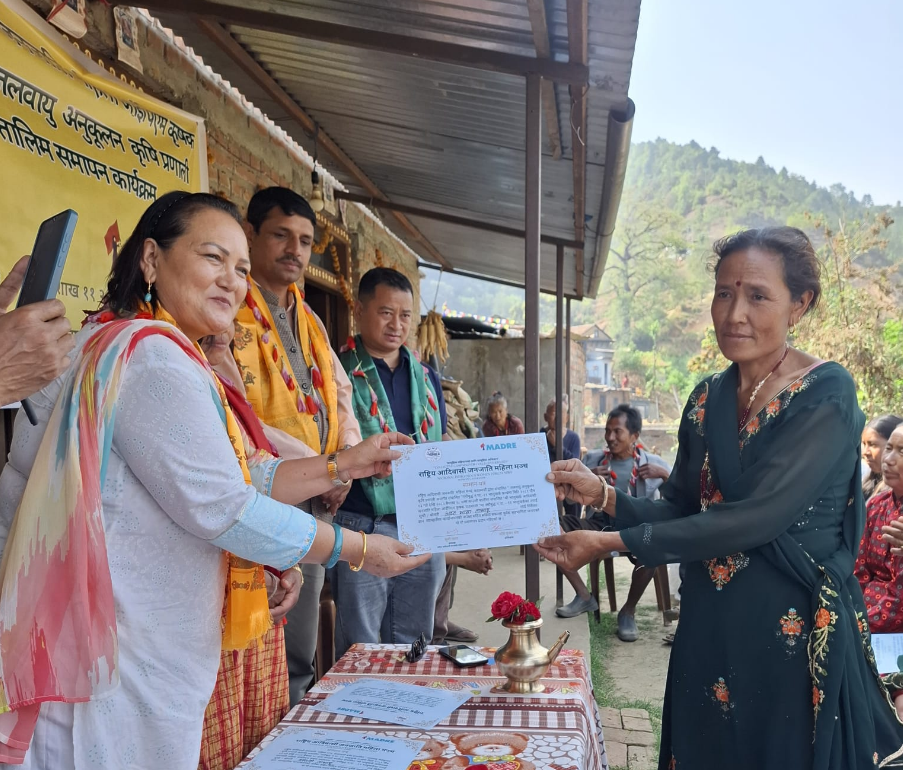
This training, facilitated by Mr. Om Krishna Shrestha and supported by MADRE, provided hands-on knowledge to Indigenous women on sustainable agriculture methods tailored to their local environment. Mr. Shankar Prasad Bhattarai, Ward Secretary of Namobuddha Municipality-11, and Ms. Suni Lama, Chairperson of NIWF officially handed over the tunnel plastics and certificates to the 20 women farmers. Their presence highlighted the collaboration between local authorities and Indigenous organizations in promoting agricultural resilience. Other attendees included Ms. Basanti Tamang, Chairperson of the Bhalukharka Indigenous Women Farmers IPM Group, Ms. Sanila Lama, Field Coordinator of NIWF, and social worker Mr. Gyan Bahadur Tamang. The program was facilitated by Ms. Sumina Tamang, Secretary of the IPM Group, while Ms. Rasmila Talim delivered the welcome remarks. Special thanks were extended to Mr. Om Krishna Shrestha for his committed facilitation throughout the training period. His role was crucial in ensuring the participants gained practical skills to apply in their daily farming activities. This initiative reflects NIWF’s ongoing efforts to empower Indigenous women through sustainable agriculture and community-based climate adaptation.
